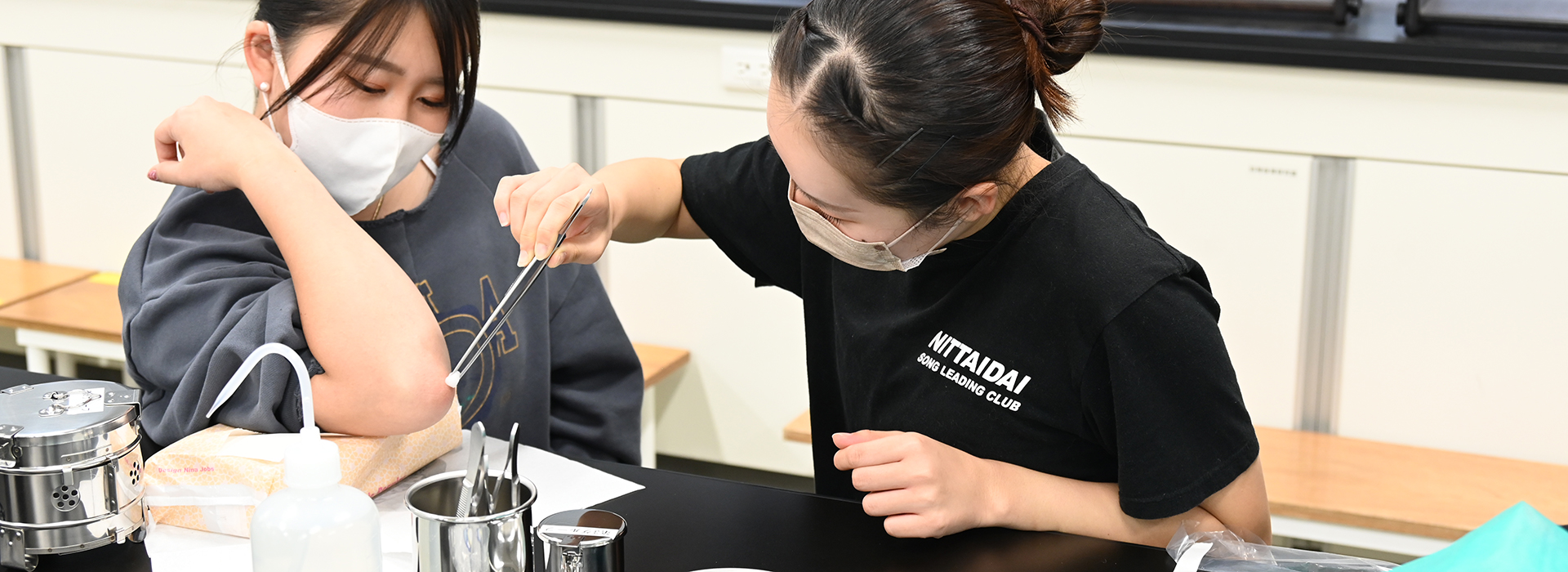
Department of Health Science
Striving to promote social welfare through sports for people’s healthy and enriching lives both mentally and physically.
The Department of Health Science, consisting of the academic divisions of Health Promotion and Social Support, aims to develop its students into competent professionals in the fields of education and social welfare that possess both practical skills and
theoretical knowledge related to health, sports, and medical sciences. NSSU’s unique programs integrated into the curriculum allow the students to learn practical skills that are essential for maintaining and enhancing people’s mental and physical health
as well as fitness, and for ensuring their safety, including treatment of injuries and impairments caused by sporting activities.
| Curriculum duration: | Four years |
| Academic degree: | Bachelor (Physical Education) |
| Class size: | 195 students |
| Graduation requirement: | 124 credits at least |
Career paths and qualifications
Typical career paths
- School nurses
- Junior and senior high school teachers (health and physical education)
- Employees of companies involved in physical education for young children
- Certified social workers
- Employees of social welfare facilities
- Public employees of various types
- Company employees, etc.
Licenses and qualifications that may be obtained
- Junior/senior high school class-1 teacher license (health and physical education)
- School nurse class-1 teacher license *Health Promotion division only.
- Certified social worker (eligibility for examination)*Social Support division only.
- Class-1 health supervisor
- Japan Association of Training Instructors-certified training instructor (eligibility for examination)

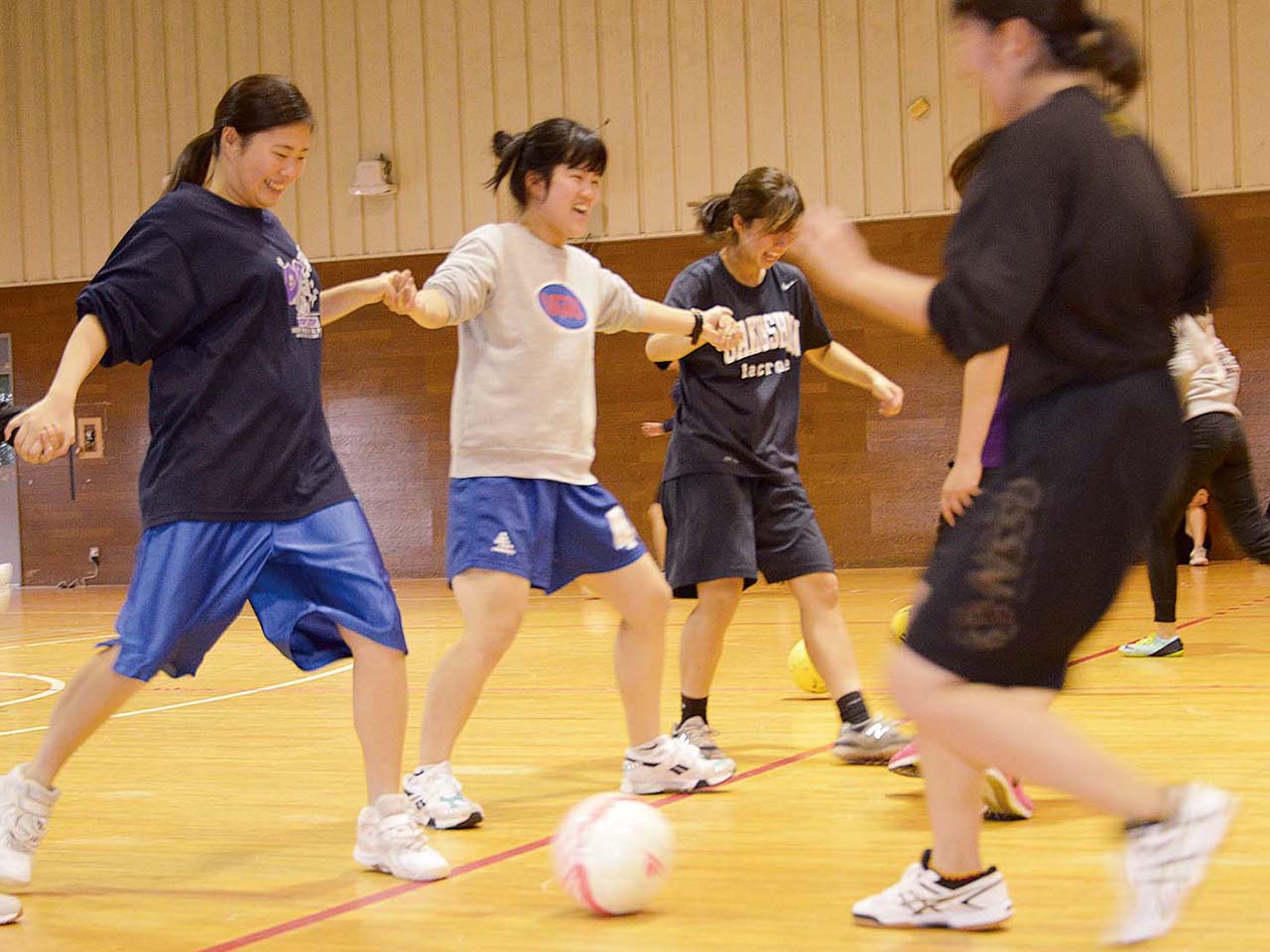
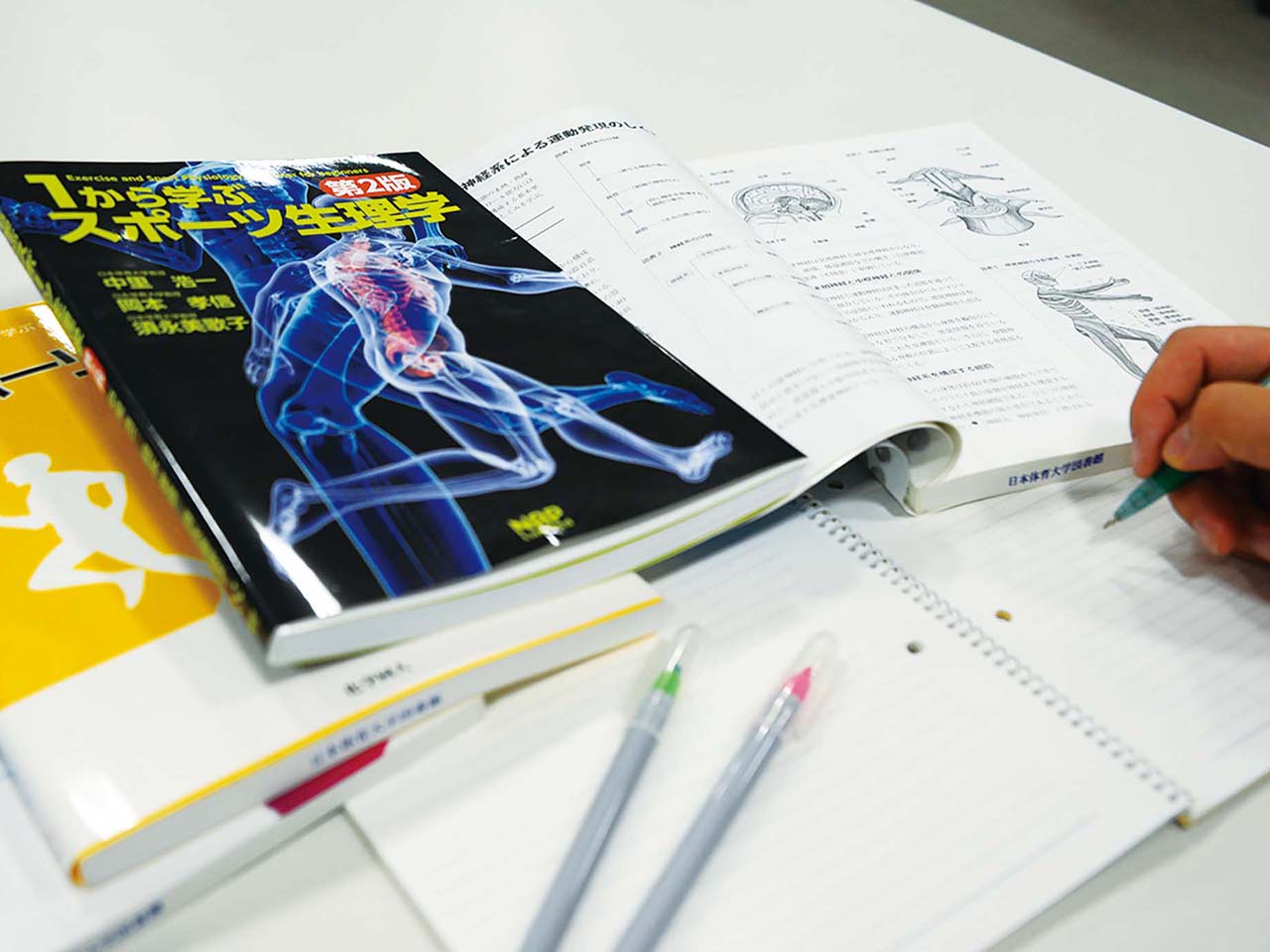
Key departmental features
Acquire specializedknowledgeandskills.
 The students enrolled at the Department learn expertise and technical skills interconnecting sports medicine, science, and social welfare. The curriculum is specifically designed to develop essential capabilities required to become health supervisors
that provide guidance for employees to improve their physical fitness and health in the workplace, school nurses that promote healthy living by their pupils and students at educational institutions, certified social workers that provide welfare support,
etc.
The students enrolled at the Department learn expertise and technical skills interconnecting sports medicine, science, and social welfare. The curriculum is specifically designed to develop essential capabilities required to become health supervisors
that provide guidance for employees to improve their physical fitness and health in the workplace, school nurses that promote healthy living by their pupils and students at educational institutions, certified social workers that provide welfare support,
etc.
Acquire practical skills.
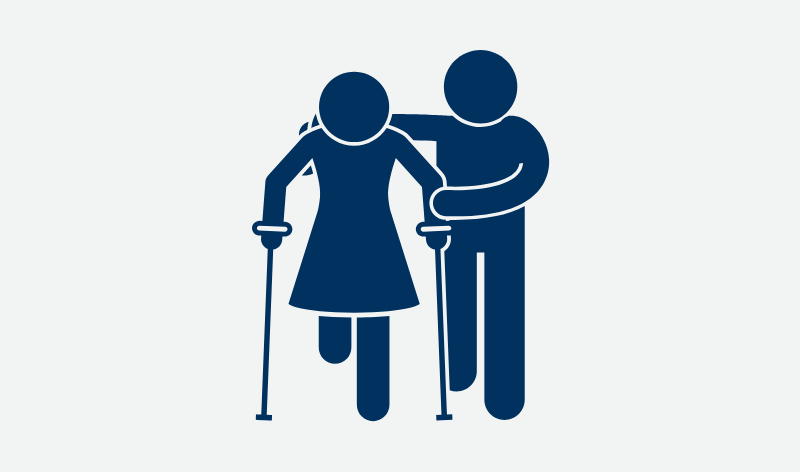 The curriculum includes various practical courses for learning useful skills, such as Hygiene and PublicHealthExperiment andPracticum, which provides practical experience necessary for becoming health supervisors; ClinicalNursingPracticum
and SchoolNursingPracticum, which teach how a competent school nurse should handle various circumstances that typically arise at schools; Consultation and Support Practicum that prepares students for the certified social worker examination;
and Consultation and SupportTraining that develops basic communication skills useful for consultation and support jobs.
The curriculum includes various practical courses for learning useful skills, such as Hygiene and PublicHealthExperiment andPracticum, which provides practical experience necessary for becoming health supervisors; ClinicalNursingPracticum
and SchoolNursingPracticum, which teach how a competent school nurse should handle various circumstances that typically arise at schools; Consultation and Support Practicum that prepares students for the certified social worker examination;
and Consultation and SupportTraining that develops basic communication skills useful for consultation and support jobs.
Develop instruction, planning, and application capabilities.
 The curriculum is also designed to cultivate the students’ well-balanced human capabilities that are appropriate for the professions of health supervisor, school nurse, and certified social worker that must provide instructions and support in a responsible
manner. It covers wide-ranging courses such as Labor Laws I & II, Social Welfare Survey, and Sports Nutrition, from which the students are expected to learn planning, presentation, and problem-solving skills that all comeinhandywhen
they need to actively handle new tasks and other challenges.
The curriculum is also designed to cultivate the students’ well-balanced human capabilities that are appropriate for the professions of health supervisor, school nurse, and certified social worker that must provide instructions and support in a responsible
manner. It covers wide-ranging courses such as Labor Laws I & II, Social Welfare Survey, and Sports Nutrition, from which the students are expected to learn planning, presentation, and problem-solving skills that all comeinhandywhen
they need to actively handle new tasks and other challenges.
Sample course
Learn health maintenance and improvement methods.
Key features of this practical course
Health Promotion Theories
Instructor: Shingo Noi
Key features of this practical course
- It provides foundational knowledge for studying through the rest of the Department of Health Science’s curriculum.
- It allows the students to change the components of daily living activities for health improvement.
- It teaches how health-affecting factors are interrelated.
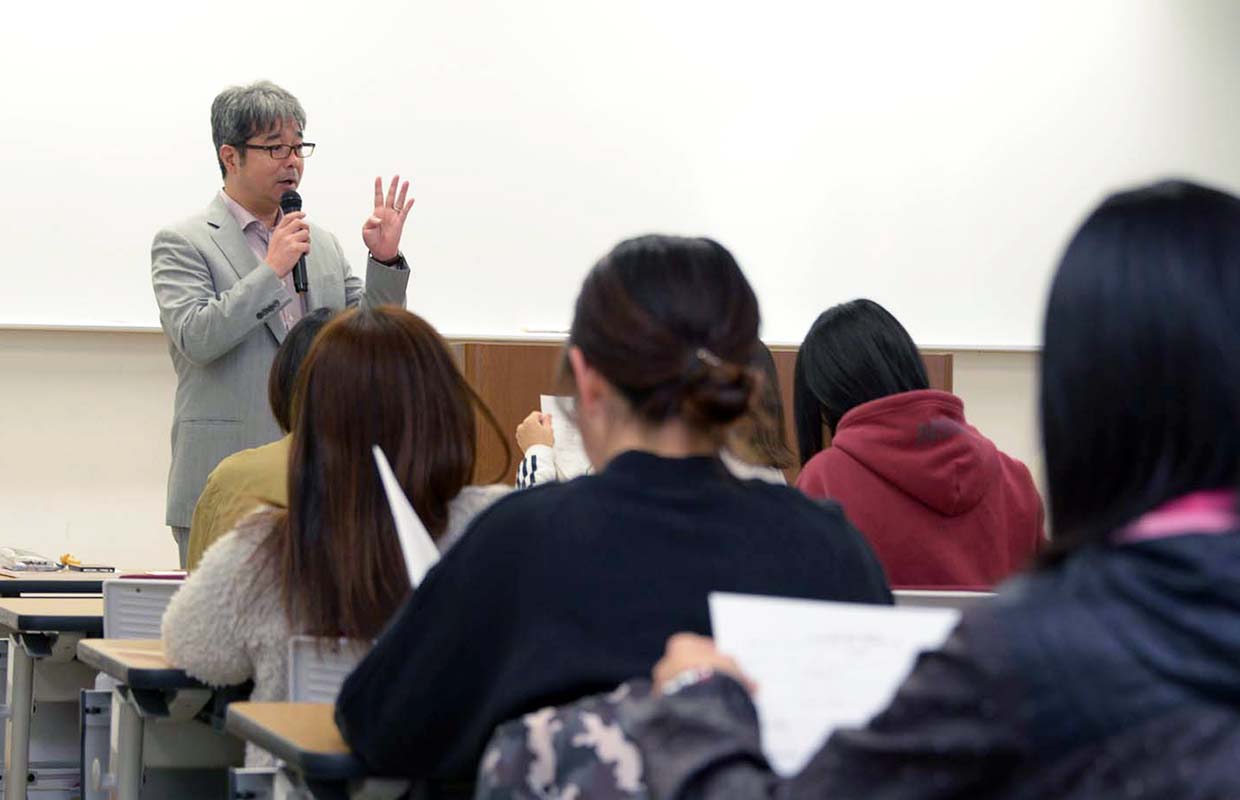
Build a foundation for the rest of academic work at the Department of Health Science.
Health Promotion is one of the academic divisions that make up the main curriculum at the Department of Health Science. Health Promotion Theories is a core course that is taken by all students in the first year. The course imparts basic health promotion knowledge, based upon which subsequent courses on sports, medicine, social welfare, education, etc. will be taught, from which the students gain the comprehensive knowledge necessary for pursuing a career as school nurse or instructor.“Health promotion” is defined by the World Health Organization (WHO) as the process of enabling people to increase control over, and to improve, their health.
Contemplate health promotion from various perspectives.
In today’s society, our healthy daily living is affected and sometimes threatened by various factors such as lifestyle, sleep,shikohin(certain foods, beverages, alcohol, tobacco, and other goods consumed mainly for pleasure), lifestyle diseases, and environmental issues. This course allows the students to learn health promotion methods and improve their understanding of what constitutes a healthy lifestyle, with reference to the interconnection between health promotion and the aforementioned factors. The course also demonstrates how ideal health promotion practices can be integrated into health education. The students are expected not only to learn what is taught in the course but also reassess their own lifestyle, improve their health maintenance and improvement skills, and put them to practice in actual activities of daily living.
Health Promotion Division
Health Promotion
Learn knowledge and skills necessary for becoming school nurses and instructors whose jobs entail the enhancement of their students’ physical fitness and promotion of their health maintenance and improvement.

This Health Promotion division is also suitable for students aspiring to become health supervisors and other competent health management professionals in the workplace.
Sample courses
School Nursing Outline (including a description of school nurses’ typical job duties)
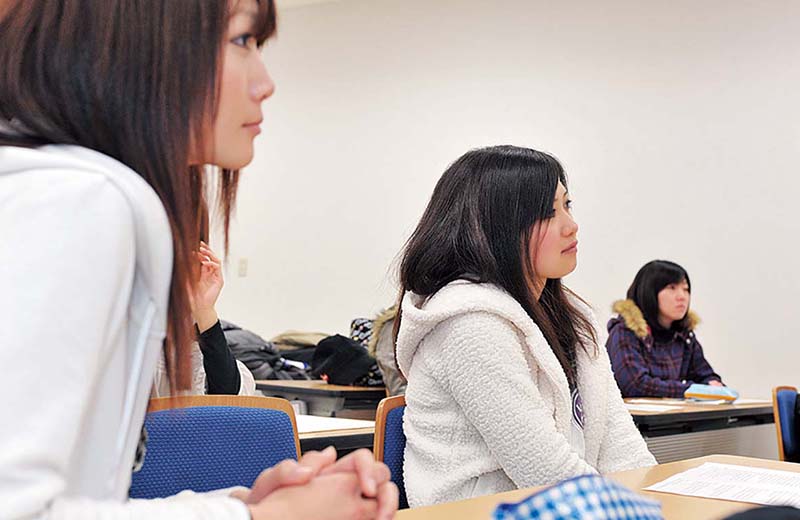 Become a school nurse that can aid the children it cares for to lead healthy lives.
Become a school nurse that can aid the children it cares for to lead healthy lives.
This course provides information on the profession of school nurse and what duties it entails, along with fundamental knowledge in health science, so that the students can acquire the capability to work as competent school nurses that can protect and foster their students’ health, nurture their developmental potential, and live healthy lives. The course is designed to equip the students with knowledge on the specialized functions of the profession and prepare them to become school nurses that are adept at resolving the various health issues and challenges with which today’s children are confronted.
Immunology
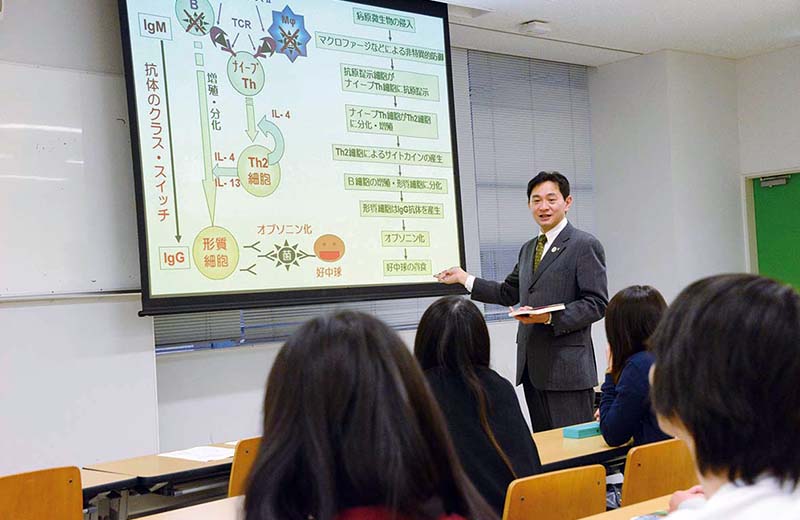 Learn how the immune system works and how to deal with allergic reactions at school, which are part of a school nurse’s job requirements.
Learn how the immune system works and how to deal with allergic reactions at school, which are part of a school nurse’s job requirements.
The immune system has the function of getting rid of any foreign or undesirable substances that are harmful to the human body and maintaining its normal status. This course teaches the basic knowledge on immunology, disease prevention, and school healthcare that are all required part of a school nurse’s job. The student also learns other crucial information on the influenza, anaphylaxis, and other allergic reactions.
Clinical Nursing Training
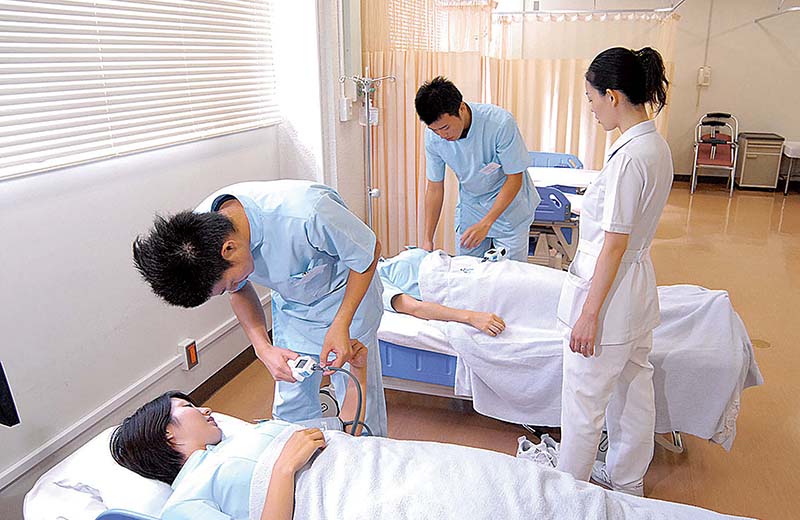 Pursue a career as a school nurse with practical skills usable in the infirmary and other school setting by leveraging all available knowledge learned so far.
Pursue a career as a school nurse with practical skills usable in the infirmary and other school setting by leveraging all available knowledge learned so far.
In this course, the students visit a hospital to learn firsthand about proper emergency nursing, first aid, health management, etc. so that they would be able to properly deal with cases of injuries and diseases in the infirmary and other school setting as school nurses. This practicum takes place in the summer of the third year, at an NSSU-designated hospital, lasting four weeks. This is a core course that all students aspiring to become a school nurse must take, so they can use the practicum to learn how to effectively apply the knowledge and skills learned so far.
Social Support Division
Social Support
Learn key knowledge and skills on social welfare support that is becoming increasingly important in today’s society.
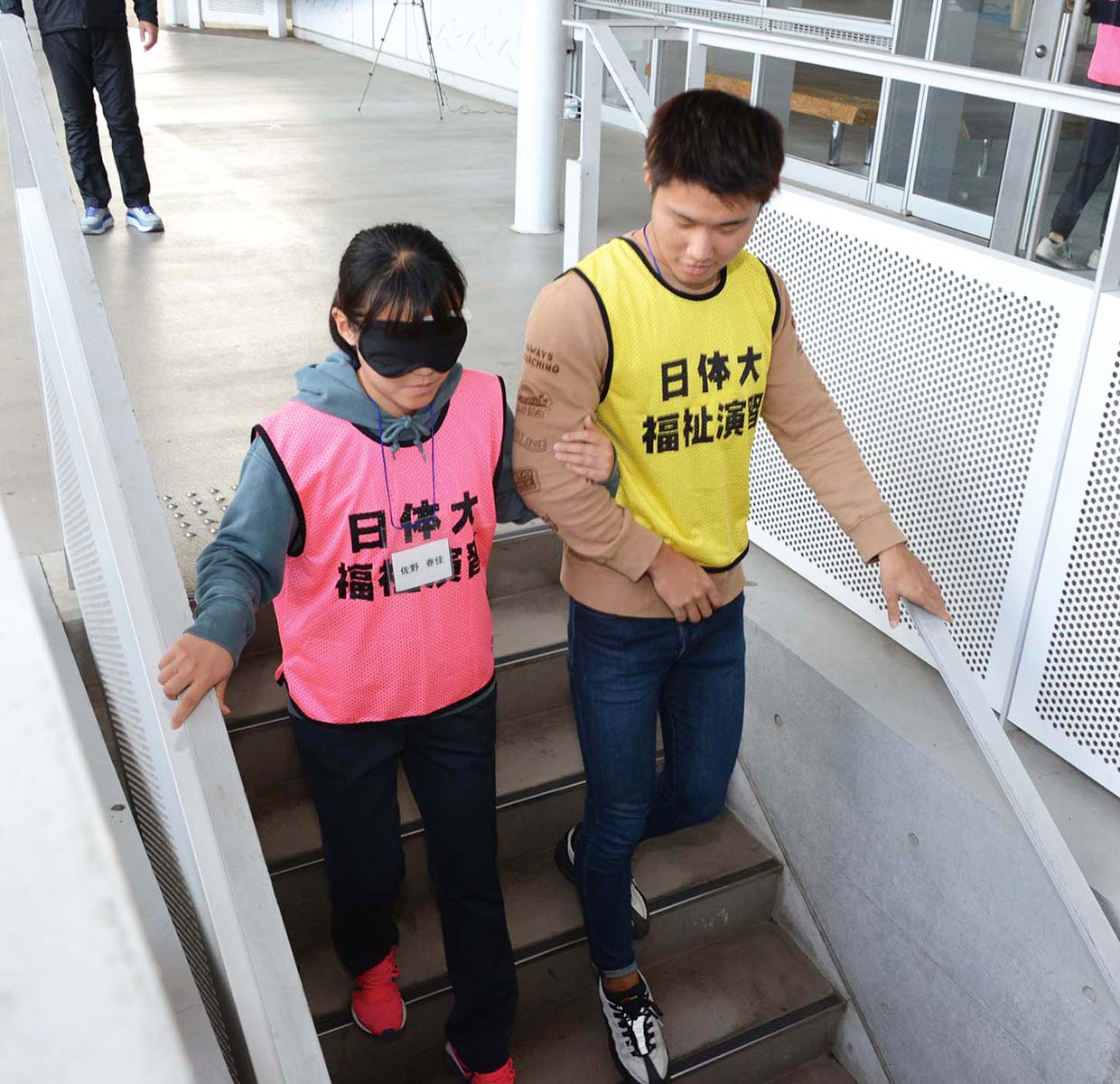
Sample courses
Social Welfare I
 Learn the basics of social welfare and expand perspective for future planning.
Learn the basics of social welfare and expand perspective for future planning.
This course teaches fundamental knowledge on social welfare, including the various issues and challenges involving young children, disabilities, aging, poverty, etc. and how to address them in our everyday life under today’s social circumstances. To pursue a career in social work, education, and other jobs that require constant interaction with people, it is essential to recognize and understand people’s living from diverse perspectives.
Social Work Theories and Methods IA
 Learn consultation support theories and technical application models, etc.
Learn consultation support theories and technical application models, etc.
This course teaches essential knowledge and skills, including theories on the interaction between individuals and their environment, who are eligible for consultation support and the process involved, and key approaches used in social work such as psychosocial, functional, problem-solving, objective-based, and hazard intervention methods. The course is designed to prepare the students for the national examination for social worker certification.
Welfare Administration
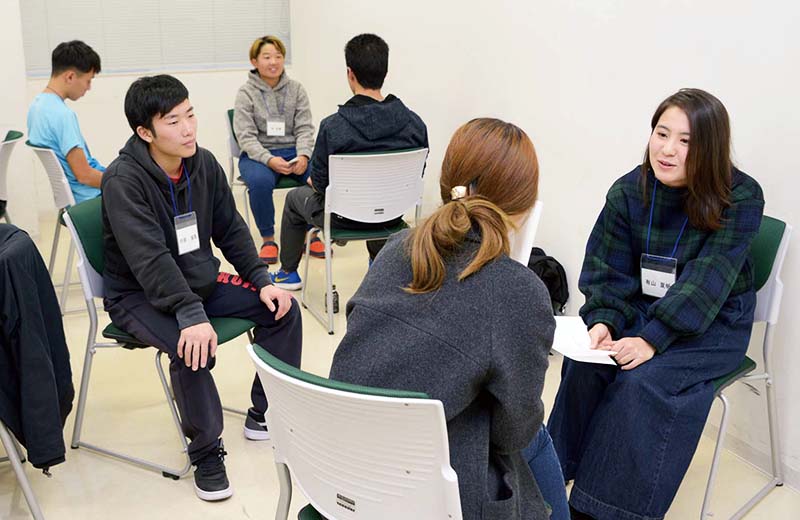 Learn practical knowledge and skills essential in social welfare service to prepare for the national examination for social worker certification.
Learn practical knowledge and skills essential in social welfare service to prepare for the national examination for social worker certification.
This course teaches practical knowledge and skills on the administration of various organizations and groups that are involved in social welfare services, including basic theories and applicable laws, management and operation, human resource development, and service evaluation methods. The course provides handouts, reference literature, audio and visual materials, etc. that are conducive to the intended learning.